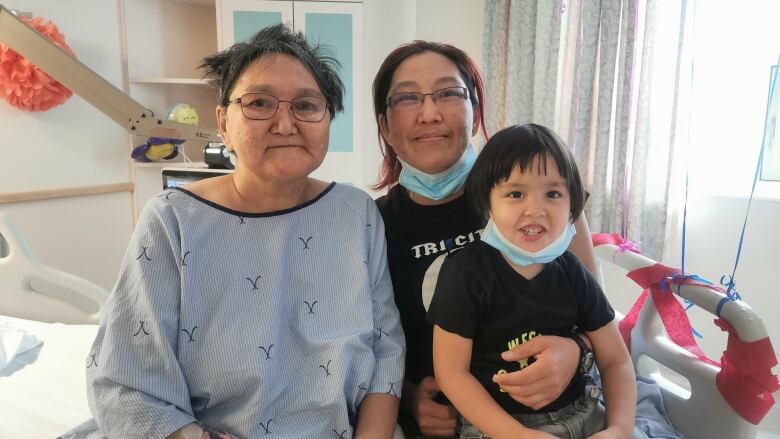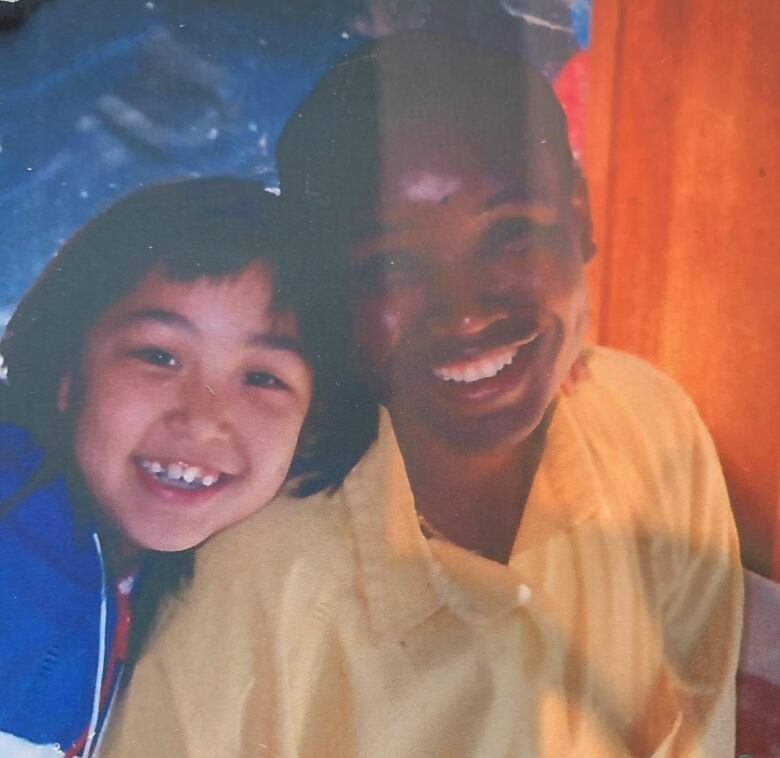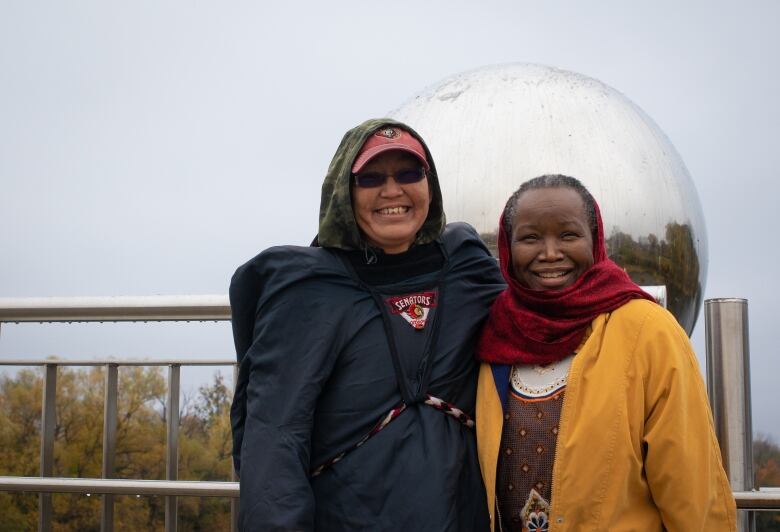Ottawa woman meets birth mom during pandemic for first and last time
Melinda Shambare got COVID-19 exemption to meet birth mother, who had terminal cancer

It was a reunion expedited by devastating news, thencomplicated by COVID-19.
In August, four decades after she was put up for adoption, Melinda Shambare boarded a plane for Whitehorsewith her two children and her adoptive mother.
The family had been gradually reconnectingwith Shambare's birth mother, Beverly Kitli, over the months and years before the trip, through online messages and video chats. But in the summer,they learned she'd been diagnosed with metastatic pancreatic cancer. Itwas terminal, andthe window for a face-to-face meetingwas closing rapidly.
The Ottawa family wouldspend six days in Whitehorse in August,shuttling between Kitli's place and the local hospital, all while navigating the rules around COVID-19. It would be the first and only timeShambare would spend with her as an adult.
"After we left, it sort of went downhill," Shambaretold CBC in late October, roughly two months after her birth mother's death. "She really held on to meet me."
'You accept what you can get'
The COVID-19 pandemic and the travel restrictions designed to halt its spread have turned reunions of all sorts from couples kept apart by international borders to families trying to pay last respects to loved ones into major bureaucratic endeavours.
In the Shambare family's case, they were facing amandatory 14-day quarantinethe Yukon government was imposing on most travellers arriving from outside the territory.

So whenShambare's adoptive mother, Chipo who became close with Kitli in the 1970s after immigrating from Zimbabwe to Inuvik, N.W.T., to work as a midwife pleaded with the territorial government togive Melinda the chance to meet her before she died, she wasn't sure what the answer would be.
"I was working at a doctor's clinic [in the summer and] everybody said, 'No, the Yukon, they're not allowing people from Ontario to go.' If I went, we'd have to be in quarantine for 14 days," she recalled. "And I said, 'I don't think we had [that] much time.'"
Her pleas worked:Yukon's Ministry of Health grantedthem permission to avoid quarantine, allowing them toleave their hotel to visit Kitli first at her daughter's residence and later, after her health worsened,in hospital.
Thosehospital visits, said Chipo, were short, typically one-on-one. They wore masks, glovesand gowns for protection. Chipo said she tried to keepMelinda's son Michael and daughter Piper occupied so that Melinda and her birth mother could have as much time together as possible.
"You accept what you can get, and do the best you can," she said. "Really, my goal was to have [Melinda] connect, just do what needed to be done, feel what needs to be felt."
Major changes
For those who work in the adoption field, it's become clear the pandemic has created significant challengesfor people seeking to connect with their blood relatives for the first time.

"It's very much thought of as a time you can hug, a time you can connect, a time you can see the other person, all of that," said Dianne Mathes, executive director with the Adoption Council of Ontario.
"Those are all the things that COVID has taken away from us."
- Ontario man connects with Newfoundland family he never knew
- Two sisters reunited in Ottawa 50 years after Alberta adoptions
That said, it's understandablepeople would try to "move mountains" during the pandemic, Mathesadded,if they suddenly faced the prospect a face-to-face meeting with their genetic relative might never occur.
Over the six days Melinda Shambare spent in Whitehorse, she and Kitligot to know each other better. They tried not to talk about the trauma Kitlihad lived through prior to the adoption she had been sent to residential school, Shambare said, and had struggled with addiction.
Instead, they focused on things likeart:Shambare learned the miniaturekamiksshe designs small ornamental winter boots, a skill she picked up from an Inuit elder in Ottawa were similar to the ones her mother crafted when she was young.
The family returned to Ottawa on Aug. 16. After the visit, Kitli's health rapidly deteriorated, and she died 10 days later, on Aug. 26.
"I'm not much of an emotional person," Shambare said. "But I know that meeting my mother was really, really good."

'A compassionate thing'
After Kitlidied, Shambare's sister whom Shambare also met for the first time on the trip took their mother's ashes backto Inuvik, in the hopes they'll be given a proper burial when the ground has thawed.
For Chipo Shambare, the emotional six-day visit was the culmination of something she'd long hoped for: that her daughter, whom she always tried to raise with a strong sense of her Inuit heritage, would find some form of closure.
"I wanted her to know that she has a mom, and [her]mom gave her [up] to have a better life it was a compassionate thing [she] did, because she knew she couldn't take care of her," she said.
"There's something she's feeling that she didn't feel before, that she's expressing that she wasn't expressing before. So to me we accomplished what we needed to accomplish."














_(720p).jpg)


 OFFICIAL HD MUSIC VIDEO.jpg)
.jpg)



























































































